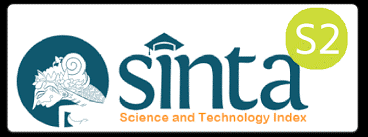Analysis Of The First Pilar Community-Based Total Sanitation Implementation
DOI:
https://doi.org/10.35730/jk.v9i2.358Keywords:
ODF, SBS, STBMAbstract
The implementation of Community-Based Total Sanitation starts from the first pillar of open defecation which is the entrance to total sanitation. ODF conditions are marked by 100% of the community having access to Defecate in their own latrine, there is no dirt in their environment, and they are able to maintain the cleanliness of the latrine (Health Minister Regulation No.3 of 2014). In the City of Bengkulu, from 19/67 triggering Village / Sub-district, achievements of the new ODF village 7 villages / Sub-district. The research objective was to analyze the implementation of the first pillar Community Based Total Sanitation. This type of research is qualitative research with descriptive research methods. The informants in this study amounted to 6 people consisting of the Head of the Community Health Center and sanitation officers. The results showed that in implementing the first pillar community-based total sanitation in Bengkulu City there was policy support from the government, namely the Republic of Indonesia Health Minister's Regulation No. 3 of 2014, there were still energy workers, funding sources for implementation came from Health Operational Assistance funds, availability of facilities and infrastructure in the form of brochures, leaflets, counseling, and FGD. The process was carried out starting from the pre-triggering phase by conducting technical preparations, observing Clean and Healthy Life Behavior, arranging triggering schedules and locations, triggering by holding meetings with the community, triggered by the outbreak of disease transmission, growing disgust, shame and fear of illness and post-triggering by looking at the village with ODF village status, building community commitment and mentoring and monitoring triggering activities. The output of the Village in the City of Bengkulu with the status of the SBS headman varies from 25%, 50%, and 100%. It is recommended to develop further analysis and results, in particular, to deepen the analysis of the implementation of the first pillar community-based total sanitation and the factors contributing to the success of ODF Villages.References
Balitbang Kemenkes RI. 2013. Riset Kesehatan Dasar; RISKESDAS. Jakarta: Balitbang Kemenkes RI.
Dinas Kesehatan Kota Bengkulu. 2018. Profil Kesehatan Kota Bengkulu Tahun 2017. Bengkulu: Dinas Kesehatan Kota Bengkulu.
Dinkes Provinsi Bengkulu. 2015. Provil Dinas Kesehatan Provinsi Bengkulu Tahun 2015. Bengkulu: Dinas Kesehatan Provinsi Bengkulu.
Kemenkes RI. 2008. Kepmenkes RI Nomor 852 Tentang Strategi Nasional Sanitasi Total Berbasis Lingkungan. Jakarta: Menteri Kesehatan RI.
Kemenkes RI. 2014. Kurikulum dan Modul Pelatihan Sanitasi Total Berbasis Masyarakat (STBM). Jakarta: Kementerian Kesehatan RI.
Kemenkes RI. 2014. Pedoman Pelaksanaan STBM. Jakarta: Sekretariat STBM Nasional.
Kemenkes RI. 2014. Permenkes Nomor 3 Tahun 2014. In: RI DK, editor. Jakarta: Kementerian Kesehatan RI.
Kemenkes RI. 2015. Kebijakan Kementerian Kesehatan dalam Pelaksanaan PPSP2
“Sanitasi Layak Sebagai Upaya Preventif Kesehatan†Menuju Universal Sanitation Access bagi Indonesia 2019. In: RI DK, editor. Jakarta: Kementerian Kesehatan RI.
Kemenkes RI. 2015. Pendanaan Untuk Upaya Pelayanan Kesehatan Preventif Di Provinsi dan Kabupaten/Kota. In: RI DK, editor. Jakarta: Kementerian Kesehatan RI.
Kemenkes RI. 2016. Data STBM Indonesia; Capaian Desa ODF. Jakarta: Kemenkes RI.
Nugraha, Moh. F. 2015. Dampak Program Sanitasi Total Berbasis Masyarakat (STBM) Pilar Pertama di Desa Gucialit Kecamatan Gucialit Kabupaten Lumajang. Surabaya: Jurnal Kebijakan dan Manajemen Publik. Volume 3. Nomor 2.




